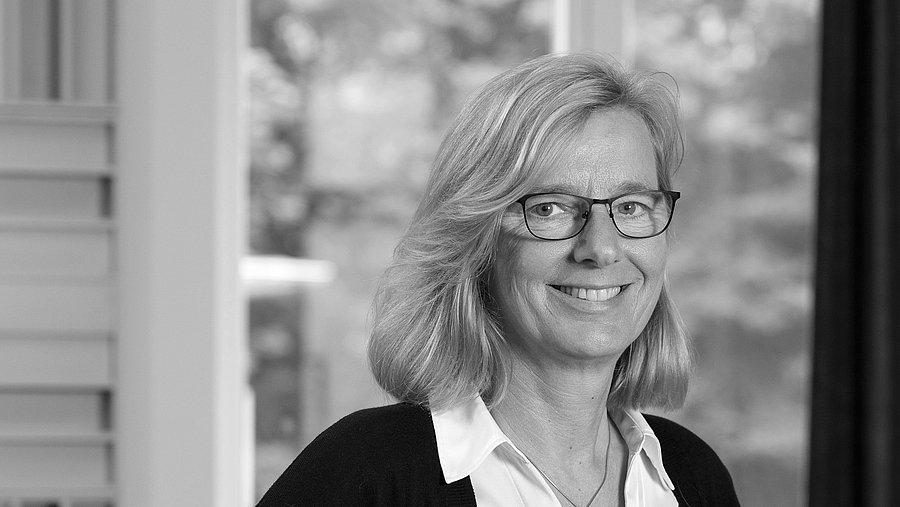
Researching, testing and advising
New role at the Federal Institute for Materials Research and Testing (BAM) in Berlin
Prof Dr Katharina Löwe / Process and Plant Engineering
Photo: Mathias Kehren
Researching, testing, and advising
Safety engineer Katharina Löwe talks about process and plant safety and her new role at the Federal Institute for Materials Research and Testing (BAM) in Berlin
Ms Löwe, you are head of the Process and Plant Safety Section at the School of Mechanical Engineering and Safety Engineering. This is still a relatively new field, isn't it?
Löwe: The Process and Plant Safety Section at the University of Wuppertal is indeed still relatively new. The University of Wuppertal is known on a national scale for its extensive focus on safety engineering with well-founded expertise. In this context, process and plant safety is a sensible and important addition to the portfolio. This knowledge is essential for the industry. Unfortunately, there are currently too few chairs with this specialisation in Germany, which means that the requirements of industry cannot be adequately met.
How vulnerable can industrial plants be and what safety aspects need to be taken into particular consideration?
Löwe: The aim of process and plant safety is the safe, efficient and economical operation of process plants, such as plants in the chemical or pharmaceutical industry, but also plants for energy generation and conversion. These plants are characterised by a high degree of complexity and a high-risk potential. One potential risk lies in the properties of the substances used, which can be toxic, explosive and/or flammable. Let's take an example from the planned energy transformation. In future, hydrogen and ammonia are to be used largely as energy sources. These substances are positive in terms of climate neutrality, but are very explosive or toxic. The plants must be conceived, designed, and operated in a way that they pose no danger to people or the environment. This depends on numerous influencing variables, which have a high degree of mutual influence, so that a holistic and systematic approach is required. Process and plant safety is characterised by a high degree of interdisciplinarity and the need for interdisciplinary knowledge and research.
You have also taken on a new, important task at the Federal Institute for Materials Research and Testing (BAM) in Berlin. BAM is the successor organisation to the State Materials Testing Materials Testing Office founded in 1871 and the State Chemical Technical Institute (Chemisch-Technische Reichsanstalt) founded in 1920. What are the authority's tasks?
Löwe: Very briefly summarised, BAM's tasks are "researching, testing, and advising". As a departmental research institute, a central task is research and development for safety in technology and chemistry. Another major area of responsibility is testing, analysis, and authorising. In addition, BAM advises the Federal Government and the industry with its expertise on the protection of people, the environment and material goods.
I took over the management of Section 2 "Chemical Safety Engineering" at BAM, which was renamed "Process and Plant Safety" in January, which not only describes the department's current areas of responsibility better, but also the planned future developments.
What immediately fascinated me was the broad positioning of BAM, the excellent expertise and the good interlinking and cooperation between the various specialist disciplines and expert groups, so that technical problems can be solved in a holistic and interdisciplinary manner.

Logo of the Federal Institute for Materials Research and Testing
Around 1,600 people from around 50 nations work at BAM. What do you do there?
Löwe: BAM is very international, which makes the work even more exciting. My section comprises five specialist areas with a wide range of fields of activity. These range from the safety of energy sources and plant safety to safety in the transport and storage of hazardous substances and the assessment of explosives. As head of department, I am responsible for the conceptualisation and strategic orientation of the section. I will continue to expand the areas of process and plant safety and strengthen process simulation and optimisation, with a completely new specialist area being set up for process simulation.
PAS is facing new challenges due to new technical developments, the need for solutions to increase efficiency and sustainability, the energy transformation and digitalisation, but also because of a new threat situation. In order to address these current and future challenges even better, expansions and realignments are necessary.
However, you won't be completely lost to the University of Wuppertal, will you?
Löwe: No, I enjoy my work at the University of Wuppertal too much for leaving. I'm only saying goodbye in part and will keep my professorship at BUW. Co-operations are planned in various areas. In addition to me taking over courses, there are also plans for collaboration in research. I am not only thinking of the specialist area of process and plant safety, there are many overlaps with various specialist areas at the university in which cooperation can be further expanded or newly established.
There are also plans to share resources, which is particularly advantageous in view of the financial situation. Cooperation is also very useful in the area of further education in order to be able to meet the demand for engineers with good knowledge in the field of safety technology mentioned at the beginning. I am currently developing a concept in close consultation with industry partners.
Uwe Blass
Katharina Löwe studied Energy and Process Engineering at TU Berlin and completed her doctorate there. From 2009 to 2020, she taught as a professor at the Brandenburg University of Applied Sciences in the field of energy and process engineering. Since 2020, Löwe has been a university professor at the University of Wuppertal and head of the Process and Plant Safety Department. In Berlin, she now heads Section 2 Process and Plant Safety at the Federal Institute for Materials Research and Testing (BAM).
